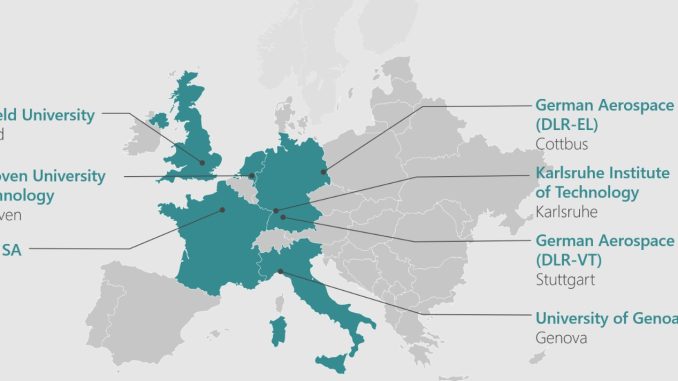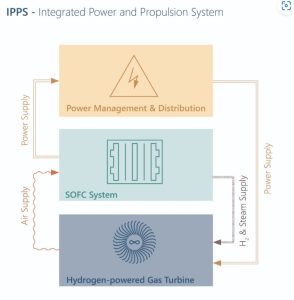
The UK’s Cranfield University is the only UK university involved in FlyECO, a EUR4 million pan-European project to develop sustainable aviation solutions through the close integration of Solid Oxide Fuel Cells (SOFC) and hydrogen-powered electrified aircraft engines.
According to the university: “FlyECO (Future enabLing technologies for hYdrogen-powered Electrified aero engine for Clean aviatiOn) launched in January 2024 and has a duration of three years, bringing together four universities from across the EU with the German Aerospace Center (DLR) as a research institution and SAFRAN as an industry partner. The consortium aims to eliminate carbon dioxide (CO2) emissions and halve nitrogen oxide (NOx) emissions, contributing to targets to achieve net zero international aviation by 2050.
Dr Evangelia Pontika, Cranfield’s lead researcher for FlyECO said: “We are excited to be part of FlyECO working closely with our partners and colleagues across Europe for the development of novel and sustainable solutions for aviation. Our participation and contribution to FlyECO brings great opportunities to our students and researchers and is essential for the ongoing development of our research capabilities on sustainable aviation.”
Focusing initially on commuter and regional aircraft with one megawatt engine class, the project team will tightly couple a hydrogen-fuelled gas turbine engine with SOFC both mechanically and thermodynamically, said the university in a press release. One of the key elements of the thermodynamic integration is the use of the produced steam from the SOFC at the gas turbine combustor to further reduce the NOx emissions. The team will develop simulation tools to design and test the Integrated Power and Propulsion System (IPPS) and will explore control and power management strategies, as well as concepts and technologies to advance to TRL3 proof of concept cyber-physical demonstrators.
Panagiotis Laskaridis, Professor of Hybrid Electric Propulsion and Head of the Propulsion Electrification Group at Cranfield University, commented: “The urgency to decarbonise aviation can’t be understated, and it’s vital we create innovative solutions to reduce environmental impacts of flying. The novel power and propulsion systems being developed through FlyECO, and the detailed testing and simulations, will help build a path to net zero aviation through new technologies.”
Cranfield University is at the forefront of aerospace technology and sustainable aviation and recently launched a new UKP12 million EPSRC Centre for Doctoral Training in Net Zero Aviation that aligns with the project.
For more information
https://www.cranfield.ac.uk/press/news-2024/over-25-million-for-research-centres-in-water-security-net-zero-aviation-and-hydrogen


